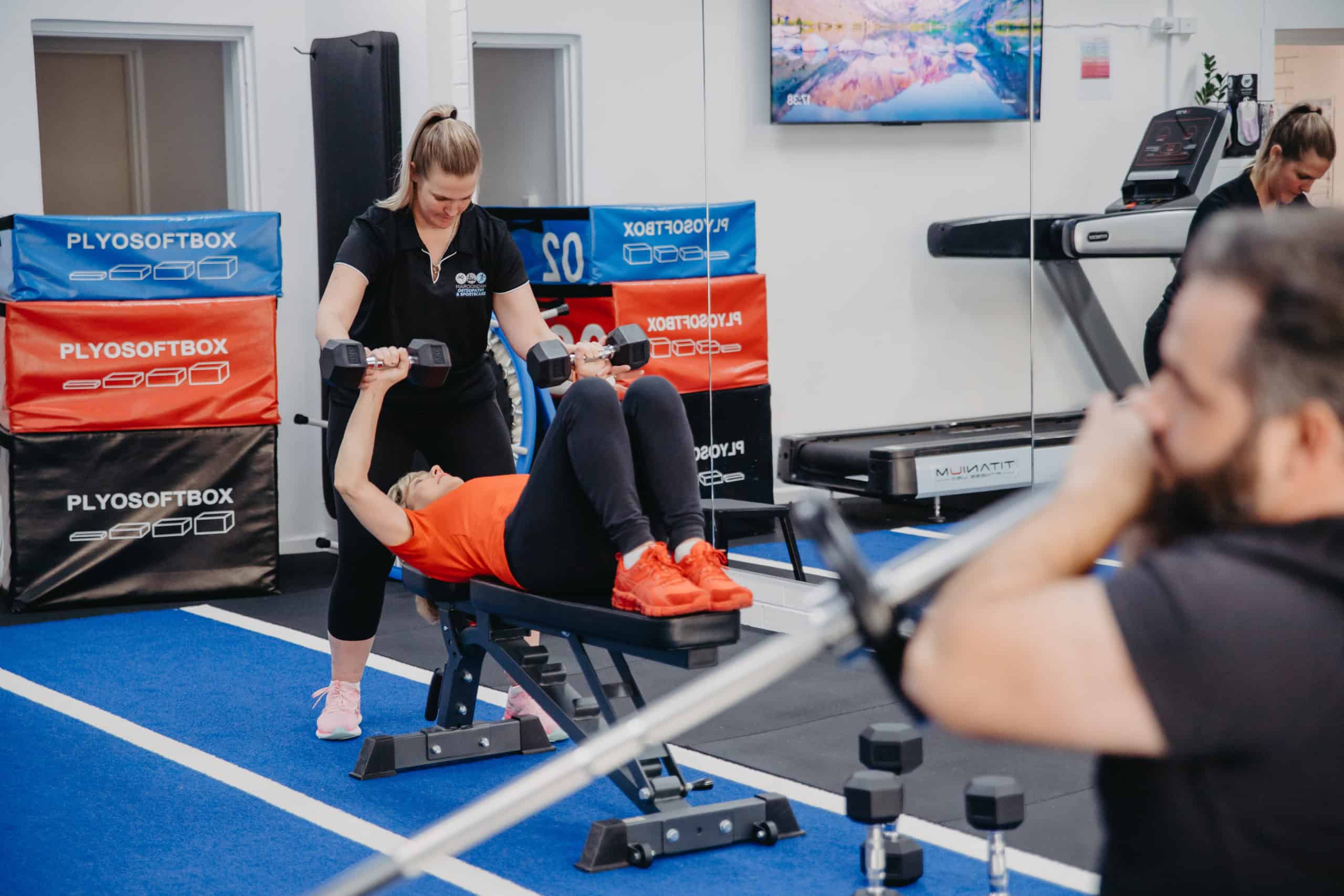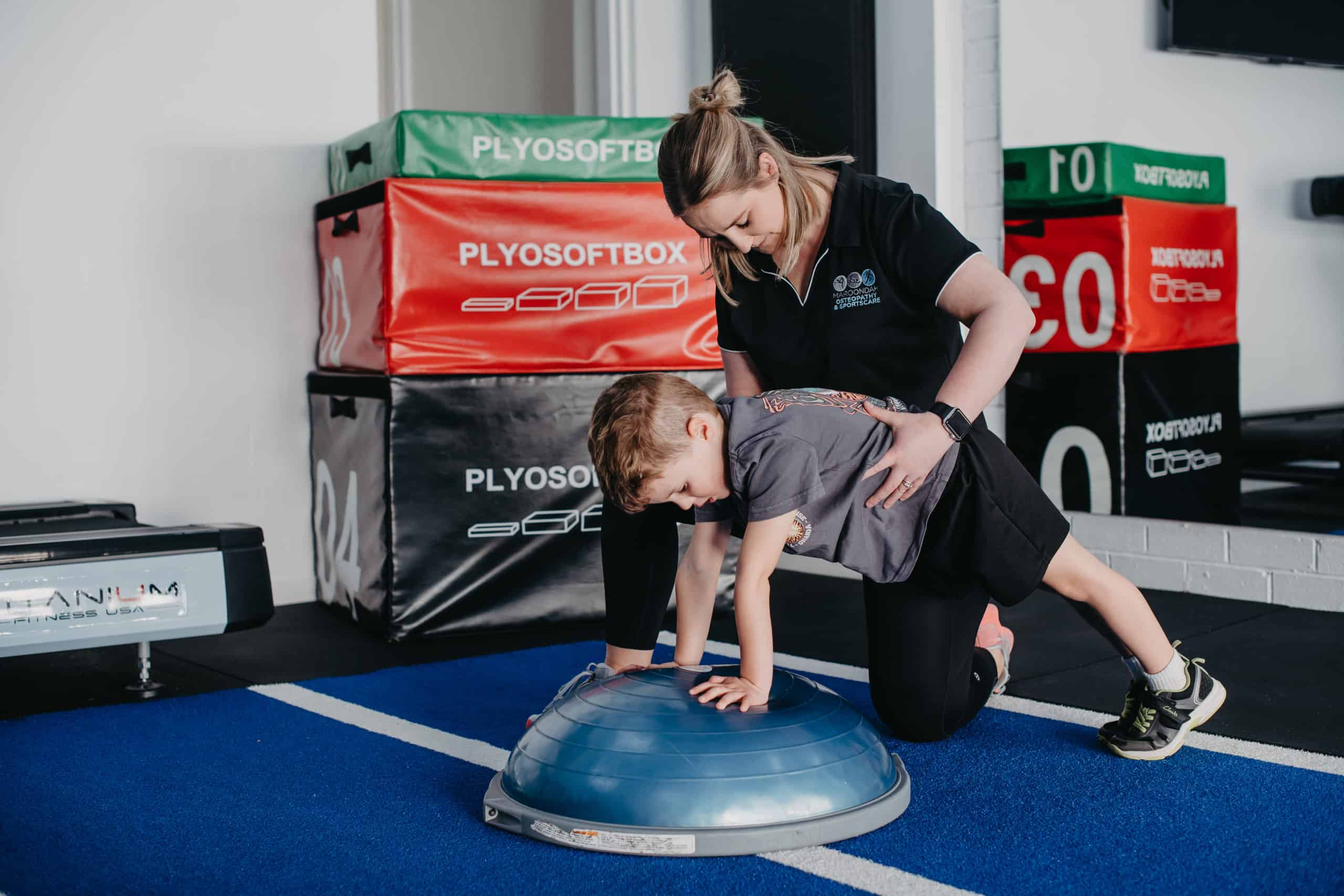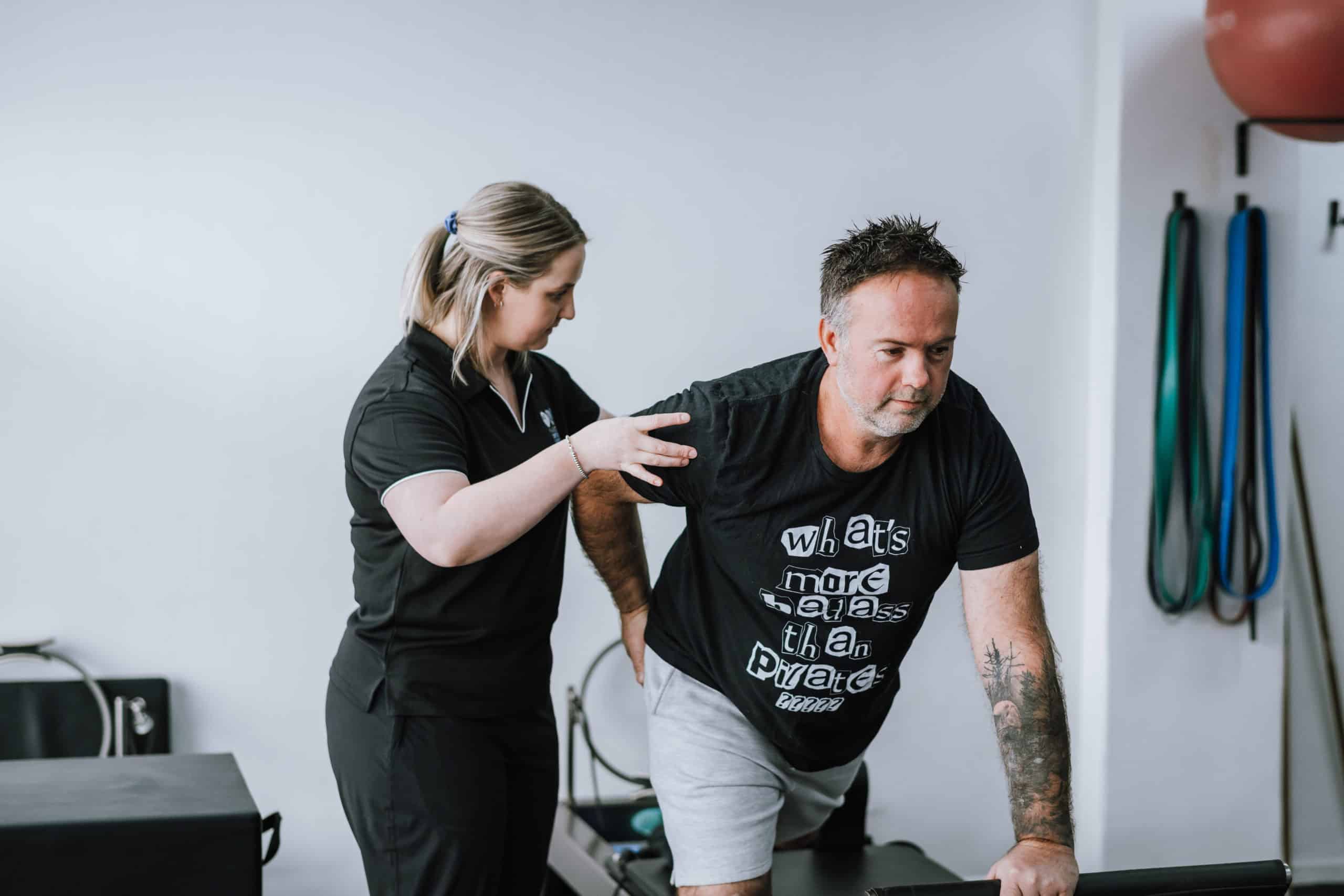This can cause some of the following symptoms:
* Bone Density Loss (estrogen is responsible for slowing the natural break down of bone)
* Aches and Joint Pain
* Mental Health Changes- Mood swings, Anxiety, Depression
* Vaginal dryness
* Hot flashes, and night sweats
* Sore Breasts Brain fog Headaches/ Migraines
* Changes in period
* Low Libido
* Bloating
DID YOU KNOW?
Early menopause can start between the age of 40-45.
Hot Flushes and Sweats can last 7 years or more.
Bone Density starts to decrease around the age of 40 years not just when you reach menopausal age.
Symptoms can start before the changes in the menstrual cycle appear.
3 ways that exercise can help women in perimenopause?
1 Improving Strength and Fitness
It is common that women in menopause have an increase in sedentary lifestyle- which puts them at an added risk of cardiovascular risk factors. This can be due to the high stresses of life, such as family schedules, work/life balance, looking after elderly relatives, as well as the symptoms associated with menopause can make it a challenging time to feel like being active. However, by undertaking exercise we can build muscle, fitness levels, reduce risk factors of diseases and improve energy levels that can make a big difference in day to day life.
2 Improving Bone Density and Health
Menopause significantly speeds up bone loss and increases the risk of Osteoporosis (condition where bones become weak and brittle). Resistance training is one of the main non- medicated ways to not only slow bone density loss, but has been shown in some stages to improve it. These are movements can include body weighted, isometric and plyometric exercises, and we will usually build to a heavier load as able to improve strength.
3 Improving Mental Health and Poor Mood
Low mood, depression and anxiety are common symptoms of menopause in varying intensity. Whilst there are medicated options, Exercise has been proven to improve mood through release of endorphins, improving feelings of confidence and self worth and can help you improve your head space.
Going through the stages of Menopause can be a challenging time in a womens life, however it does not need to be isolating, or undertaken alone without guidance. Our team is there to help with that guidance, and support you to reach you health and wellbeing goals as well as to manage changes in a positive supportive way.

Emma-Jae Adams
Accredited Exercise Physiologist



